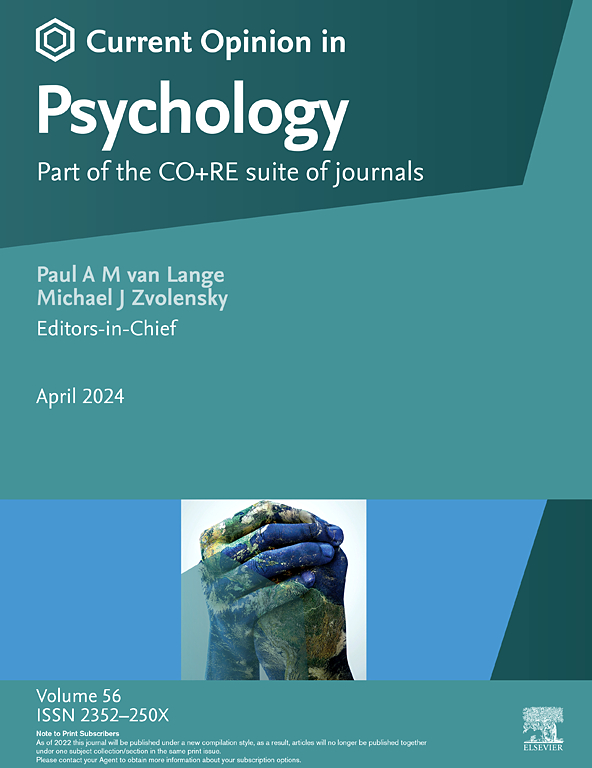(不要)告诉我更多关于我自己的事情:故意忽视与自我相关的反馈
IF 6.9
2区 心理学
Q1 PSYCHOLOGY, MULTIDISCIPLINARY
引用次数: 0
摘要
个体有很高的动机去保持积极的自我概念,当他们有机会获得与自我相关的反馈时,比如了解别人如何看待他们,这会让他们陷入两难境地。虽然这样的反馈可能会提供有价值的自我洞察,但它也有可能威胁到一个人的自我概念。因此,人们可能会故意回避这些信息,从而故意无知。在这篇综述中,我们探讨了自我相关反馈背景下的故意无知,认为这种回避可以保护个人免受不适,但也会阻碍自我认识。我们确定了影响避免自我相关反馈倾向的关键动机、个人和情境因素。最后,提出了未来的研究方向和实验设计实例。本文章由计算机程序翻译,如有差异,请以英文原文为准。
(Don’t) tell me more about myself: Willful ignorance of self-related feedback
Individuals are highly motivated to maintain a positive self-concept, which can create a dilemma when they are presented with opportunities to receive self-related feedback, such as learning how others perceive them. Although such feedback may offer valuable self-insight, it also risks threatening one’s self-concept. As a result, people may engage in willful ignorance by deliberately avoiding this information. In this review, we explore willful ignorance in the context of self-related feedback, arguing that while such avoidance can protect individuals from discomfort, it can also impede self-knowledge. We identify key motivational, personal, and situational factors that influence the tendency to avoid self-related feedback. Finally, we outline directions for future research and offer examples for experimental designs.
求助全文
通过发布文献求助,成功后即可免费获取论文全文。
去求助
来源期刊

Current Opinion in Psychology
PSYCHOLOGY, MULTIDISCIPLINARY-
CiteScore
12.10
自引率
3.40%
发文量
293
审稿时长
53 days
期刊介绍:
Current Opinion in Psychology is part of the Current Opinion and Research (CO+RE) suite of journals and is a companion to the primary research, open access journal, Current Research in Ecological and Social Psychology. CO+RE journals leverage the Current Opinion legacy of editorial excellence, high-impact, and global reach to ensure they are a widely-read resource that is integral to scientists' workflows.
Current Opinion in Psychology is divided into themed sections, some of which may be reviewed on an annual basis if appropriate. The amount of space devoted to each section is related to its importance. The topics covered will include:
* Biological psychology
* Clinical psychology
* Cognitive psychology
* Community psychology
* Comparative psychology
* Developmental psychology
* Educational psychology
* Environmental psychology
* Evolutionary psychology
* Health psychology
* Neuropsychology
* Personality psychology
* Social psychology
 求助内容:
求助内容: 应助结果提醒方式:
应助结果提醒方式:


